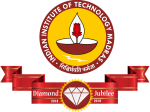
The concept of frugal engineering is gaining attention as an effective method for mitigating climate change and promoting sustainable development. It emphasizes designing and creating high-quality products with minimal resources and costs, while ensuring environmental sustainability. Unlike makeshift innovations, frugal engineering integrates scientific practices to create advanced frugal products (AFIs) that are resource-efficient, affordable, and environmentally friendly.
Frugal engineering addresses key issues like waste reduction, energy efficiency, and the conservation of materials during all stages of product development, including manufacturing and salvage. This approach can significantly contribute to achieving the Sustainable Development Goals (SDGs), particularly SDGs 7 (Affordable and Clean Energy) and SDG 9 (Industry, Innovation, and Infrastructure), by providing green solutions at a lower cost.
In this context, entrepreneurship plays a crucial role. Large enterprises (LEs), such as multinational corporations, have the financial capability to invest in research and development (R&D) for frugal engineering. However, small and mid-size businesses (SMBs), despite having fewer resources, can thrive in this field due to their ability to operate with minimal resources. Collaborations with academic institutions and research centers can help these businesses innovate and produce high-quality frugal products.
Governments and large enterprises can further support SMBs by offering financial incentives, such as grants or stimulus packages like the Inflation Reduction Act (IRA) in the United States, to accelerate the development of green technologies. This support can also contribute to job creation and poverty alleviation, as widespread adoption of frugal engineering will require a large workforce across various sectors.
An example of frugal engineering transforming grassroots products into advanced innovations is MittiCool, a refrigerator made from earthenware. Initially designed for people who could not afford electric refrigerators, MittiCool was improved through collaboration with a design institute, turning it into an advanced frugal innovation. Similarly, M-Pesa, a mobile banking app in Africa, exemplifies how frugal engineering can drive innovation and economic inclusion.
Incorporating frugal engineering into the global economy can also enhance the circular economy by reducing waste and encouraging sustainable production and consumption practices. Ultimately, frugal engineering has the potential to drive widespread sustainable development while creating entrepreneurial opportunities in all sectors.
Prof. Balkrishna C. Rao and Prof. Dr. Ingo Liefner have emphasized how adopting frugal engineering can enhance entrepreneurship and foster technologies that contribute to sustainable growth. Prof. Philippe Regnier highlighted the importance of this research in the broader context of global sustainability and frugal innovation.
Article by Akshay Anantharaman
Click here for the original link to the paper










